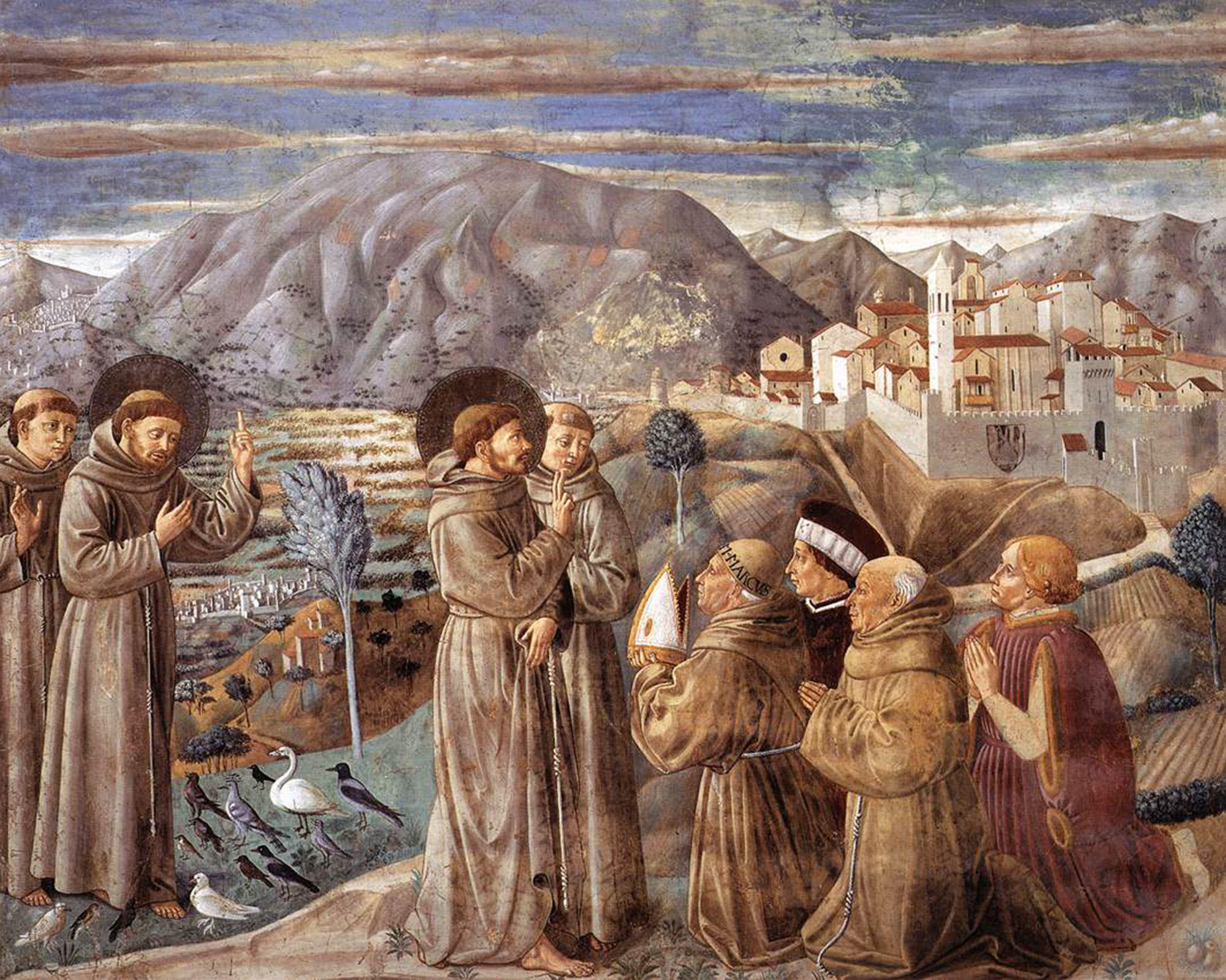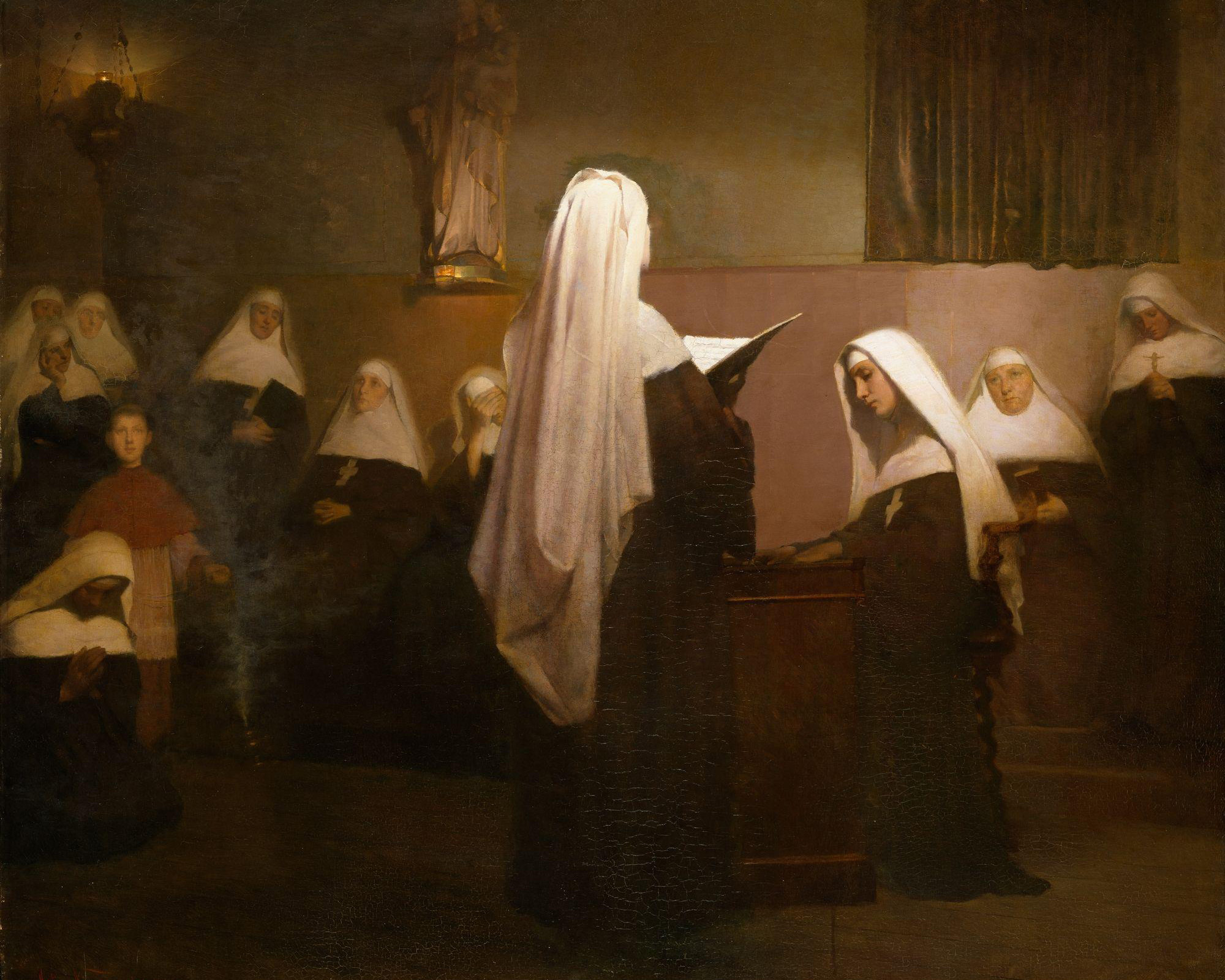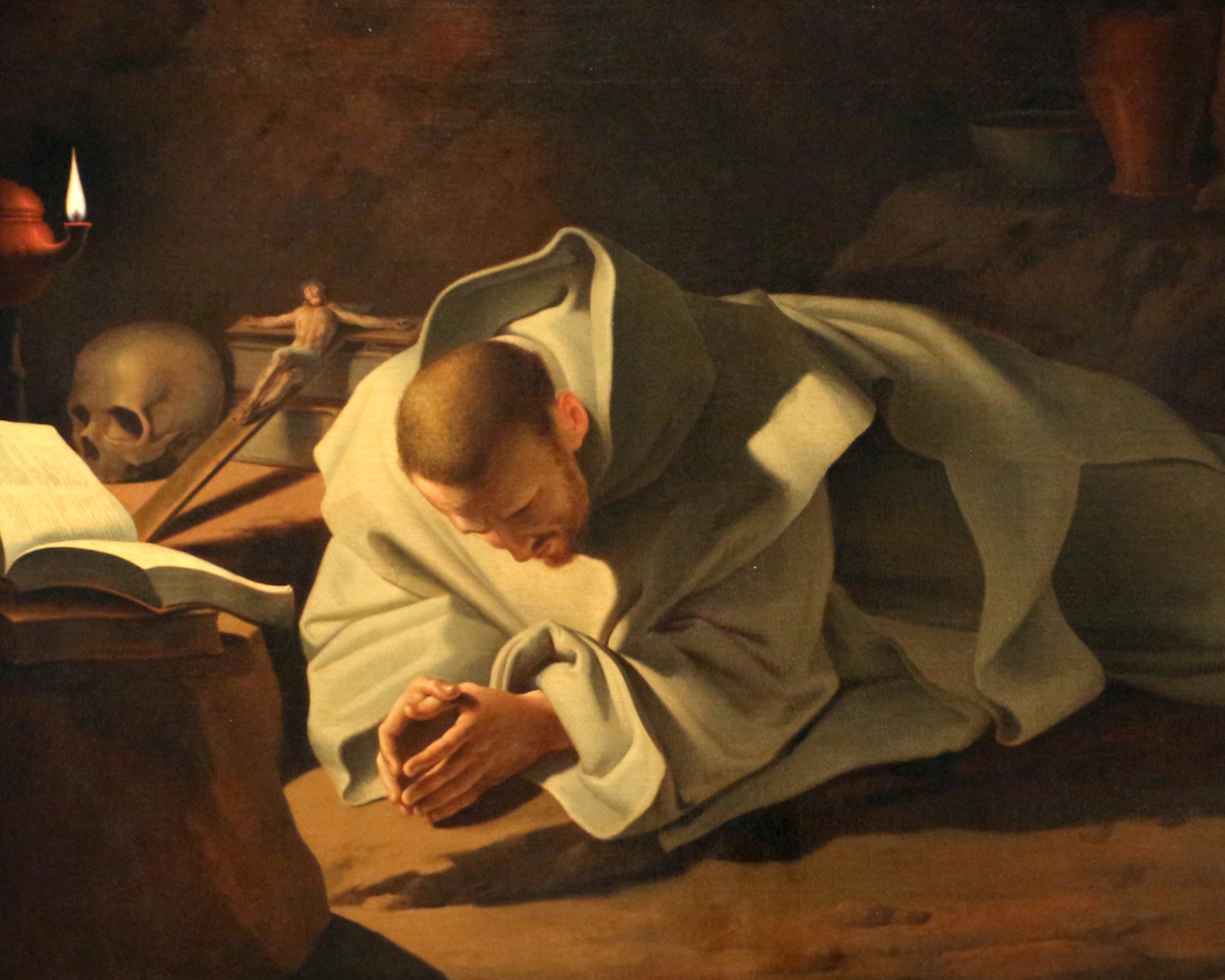Saint John of the Cross was a master of the interior life. This excerpt, taken from his most famous work, The Dark Night of the Soul, describes the sin of spiritual luxury that beginners to the spiritual life often fall prey to.
MANY beginners fall into other imperfections, over and above those belonging to each capital sin of which I am speaking. I pass them by now, to avoid prolixity, and treat of some of the chiefest, which are, as it were, the source and origin of the rest.
Spiritual Luxury
As to the sin of luxury, putting aside the commission of the sin—my object being to speak of those imperfections which have to be purged away in the dark night—beginners fall into many imperfections, which may be called spiritual luxury; not that it is so in fact, but because, originating in spiritual things, it is felt and experienced sometimes in the flesh, because of its frailty, when the soul is the recipient of spiritual communications. For very often, in the midst of their spiritual exercises, and when they cannot help themselves, the impure movements and disturbances of sensuality are felt; and sometimes even when the mind is absorbed in prayer, or when they are receiving the sacraments of penance and the Eucharist. These movements, not being in their power, proceed from one of three sources.
First Source: Sensible Sweetness
They proceed occasionally—though but rarely, and in persons of delicate constitutions—from sensible sweetness in measure and character. For then the spirit, that is, the higher part of our nature is moved to delight itself in God; and sensuality, which is the lower part, is moved towards sensible gratification, because it knows, and admits of, none other, and therefore is moved to what lies nearest to it, namely sensual pleasure. And so it happens that the soul is in spirit praying, and on the other hand in the senses troubled, to its great disgust, with the rebellious movements and disturbances of the flesh passively; this happens often at the moment of communion, because when the soul receives at the hands of our Lord the happy consummation of love which God intends to bestow, the sensual nature, as we have seen, takes its share in its own manner. But inasmuch as these two parts form but one subject, man, they ordinarily share in their respective passions, each in its own way; for, as the philosopher tells us, all that is received is received according to the condition of the recipient.
Law Of The Flesh And Of The Spirit
Thus in these beginnings, and even when the soul has made some progress, the sensual part, being still imperfect, often receives the spirit of God with that very imperfection. But when the sensual part is already renewed in the purgation of the dark night, it is no longer subject to these infirmities, because it receives so abundantly of the Spirit of God that it seems rather to be received into that Spirit itself, “as into that which is greater and grander.” Thus it possesses everything according to the measure of the Spirit, “in an admirable manner, of Whom it is a partaker, united with God.”
Second Source: The Devil
The second source of these rebellious movements is Satan, who, in order to disquiet the soul during prayer, or when preparing for it, causes these filthy movements of our lower nature, and these, when in any degree admitted, are injury enough. Some persons not only relax in their prayers through fear of these movements, which is the object of Satan when he undertakes to assail them, but even abandon them altogether, for they imagine that they are more liable to these assaults during prayer than at other times. This is certainly true; for the devil then assails them more than at other times, that they may cease from prayer.
Continuation
This is not all; for he represents before them then, most vividly, the most foul and filthy images, and occasionally in close relation with certain spiritual things and persons, by whom their souls are profited, that he may terrify and cow them. Some are so grievously assailed that they dare not dwell upon anything, for it becomes at once a stumbling block to them, especially those who are of a melancholy temperament; these are so vehemently and effectually assailed as to be objects of the deepest pity; theirs, indeed, is a sad plight, for with some persons this trouble, when under the influence of melancholy, goes so far as to convince them that they hold communication with the evil spirit, which they are powerless to resist; some, nevertheless, with a supreme effort, tear themselves away. When melancholy is the occasion of these visitations of Satan, men in general cannot be delivered from them till their bodily health is improved, unless the dark night has overtaken the soul, gradually freeing it from all this trouble.
Third Source: Fear
The third source of these depraved movements which war against the soul is usually the fear of them, for this fear which is brought about by a sudden remembrance of them, in a look, a word, or thought, makes souls suffer from them, but without fault on their part. Some souls, tender and fragile, never experience spiritual fervor or consolation in prayer without the spirit of luxury intruding at once and intoxicating their sensible nature until they are all but ingulfed in and subjugated by this vice, the disturbance lasting, passively, as long as the fervor and sometimes succeeding in stirring the senses into rebellion. The reason is that these natures, as stated, are fragile and tender, and therefore susceptible to the slightest alteration of blood and humor whence these disturbances come, for exactly the same thing happens when they are roused to anger or upset by pain.
Continuation
Sometimes, spiritual persons, when either speaking of spiritual things, or doing good works, display a certain energy and strength arising out of their consideration for persons present, and that with a certain measure of vain joy. This also proceeds from spiritual luxury in the sense in which I use the word, and is accompanied usually by a certain complacency of the will.
Test Of Purely Spiritual Affection
Some, too, from spiritual friendships with others, the source of which is luxury, and not spirituality. We may know it to be so by observing whether the remembrance of that affection increases our recollection and love of God, or brings remorse of conscience. When this affection is purely spiritual, the love of God grows with it, and the more we think of it the more we think of God, and the greater our longing for Him; for the one grows with the other. The spirit of God has this property, that it increases good by good, because there is a likeness and conformity between them. But when this affection springs out of the vice of sensuality, its effects are quite opposite; for the more it grows, the more is the love of God diminished, and the remembrance of Him also; for if this earthly love grows, that of God cools down; the remembrance of that love brings forgetfulness of God and a certain remorse of conscience.
Difference Between Human And Divine Love
On the other hand, if the love of God grows in the soul, the human love cools and is forgotten; for as they are contrary the one to the other, not only do they not help each other, but the one which predominates suppresses the other, and strengthens itself as philosophers say. And so our Savior tells us in the gospel, saying, “that which is born of the flesh is flesh, and that which is born of the spirit is spirit:” that love which grows out of sensuality ends in the same, and that which is spiritual ends in the spirit of God, and makes it grow. This is the difference between these two loves, whereby we may know them. When the soul enters the dark night, these affections are ruled by reason; that night strengthens and purifies the affection which is according to God, and removes, destroys, or mortifies the other. In the beginning both are by it put out of sight, as I shall explain hereafter.
ooo
This article is taken from a chapter in The Dark Night of the Soul by Saint John of the Cross which is available from TAN Books.









